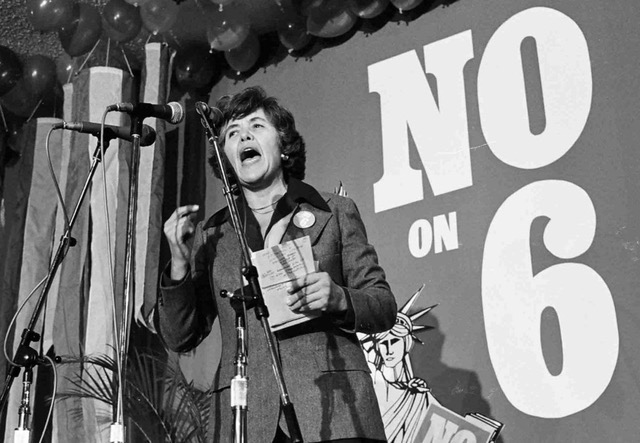In the face of hate and opposition to equality in Florida, LGBTQ activists and members of the community across the Sunshine State came together for an annual four-part event at the Center for Health Equity called, “Pride Amplified: Navigating LGBTQIAA+ Spaces” in St. Petersburg Florida.
Rocky Butler, founder and executive director of 9 Colors Initiative, and Joshua Bean, innovation officer of Foundation for a Healthy St. Petersburg, collaborated to convened activists for an “enlightened” and “impactful” event. This year, The GLAAD Media Institute – GLAAD’s research, training, and education leg – was invited to help participants “hone [their] media skills to amplify [their] voice for LGBTQIAA+ representation and advocacy.” GMI’s presentation came alongside others on DEI inclusivity, nonprofit development resources, and a BIPOC LGBTQ–led panel titled “Let’s Talk About It Part Two.”
The 9 Colors Initiative works towards equity within the lesbian, gay, trans, queer, intersex, androgynous and asexual (LGBTQIAA+) and allied communities, by eradicating biases through education, fighting against LGBTQ oppression, and fighting for equity. Together with the GLAAD Media Institute (GMI) and GMI alumni, The 9 Colors Initiative, and the Foundation for a Healthy St. Petersburg, gave participants of the Pride Amplified community event the tools and resources needed to activate effectively during Pride month.
“This year we [introduced] a new facet to Pride, and we are bringing Caribbean culture, which is a part of my life,” Butler told the audience. Butler believes it’s necessary and needed to celebrate the cultural diversity of LGBTQ people at St. Petersburg Pride. Otherwise known as the largest Pride in the state of Florida, according to St. Pete’s Pride. For Butler his work with 9 Colors Initiative is about building that inclusivity through action.
“I create spaces or work with organizations to create spaces [for] 14-year-old me, 18-year-old me, 22-year-old me, 23-year-old me, 24-year-old me to go past what 50-year-old me would,” said Butler.
As pride events continue to roll on through the end of June, good news is unfurling in Florida. A federal judge on Tuesday called the 2023 Florida law that banned transgender, nonbinary, two-spirit, and gender nonconforming healthcare for minors, and severely restricted such treatment for adults unconstitutional. The law is no longer in the state of Florida, and as of March, Floridian students and teachers can discuss LGBTQ topics in schools.
“Transgender opponents are of course free to hold their beliefs. But they’re not free to discriminate against transgender individuals just for being transgender,” Senior Judge Robert Hinkle said in his 105-page decision. The judge also said that “[s]ome transgender opponents invoke religion to support their position, just as some once invoked religion to support their racism or misogyny.”
Outside of the state legislature, discrimination persists. Joshua Bean told the crowd that it’s imperative to fight that discrimination through education and action.
“As we approach Pride Month, it is time to celebrate all LGBTQIA+ folks in St. Petersburg,” said Bean whose organization works to achieve racially equitable health outcomes and improve the determinants that shape them. The organizer continued saying that “while instituted discrimination exists for the entire LGBTQIA+ community, we must take a deeper look for the intersection of race and more accurately examine those who continue to feel the greatest burden of nationwide discriminatory efforts.”
The event held space for numerous LGBTQ trailblazers in Florida, including Sam(ira) Obeid the founder and CEO of Poetry is Activism. Obeid is an internationally renowned spoken word poet. Additionally, she is a reputed educator on intersectionality, systemic discrimination and resistance, and a local activist.
The poet describes herself as a masculine, Indian lesbian raised Hindu on her mother’s side and Muslim on her father’s side. When Sam moved to the U.S. in 2007 she earned her second and third masters degree in Multimedia Journalism and Women’s & Gender Studies.
“Like my bio said, I am Indian born and raised. I’m currently an immigrant. If you have ever been through or know anyone that has been through the immigration process, you know it is very broken, very flawed, or maybe it is perfectly created to make you feel that way,” Obeid said as Pres. Biden’s recent unlawful executive order denies most asylum claims. Obeid then went into her next poem.
“There is compulsory misogyny
“that comes with this identity that feels so blinding
“you completely missed the point
“so quick to label me in your own image
“all of the sudden I am not woman enough to understand.”
Obeid passionately enunciated.
The poet continued to read poems while talking to the crowd. She told the crowd that she moves through this world by combining her greatest passions: spoken word and anti-discrimination education.
Before joining Obeid, and others in the “Let’s Talk About It Part Two” Panel, Butler honored J. Carl DeVine with the Lifetime Achievement Award.
DeVine is an 80-year-old AIDS/HIV LGBTQ activist living in St. Petersburg. As a student, he partook in non-violent civil rights sit-in demonstrations. DeVine also organized Kwanza and Juneteeth celebrations, and is said to have gotten arrested with Martin Luther King, Jr.
“1993 Juneteenth Original Committee.”
“Carl’s journey is one of inspiration and achievement,” said Butler. “Through his work, he has touched countless lives, always striving to make a difference and improve the world around him.”
When DeVine joined Butler on stage he said “this is quite an honor.”
People throughout the city of Tampa honored DeVine’s more than 50-year-long dedication.
Before this award, Mayor Ken Welch ordered a proclamation of Oct. 19 as J. Carl DeVine Day in the City of St. Petersburg. A younger generation of LGBTQ people awarded DeVine. That younger generation, looks up to DeVine for his legacy in building equity, LGBTQ equality, and racial justice.
“I do it because it needs to be done,” DeVine told the audience of GLAAD Media Institute alumni. “You stated that I have done something special, but I am just being a good neighbor.”



